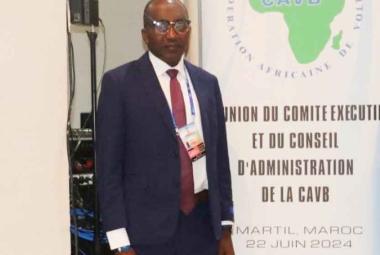By Kumba Leigh
The National Population Commission Secretariat (NPCS) on Friday, March 8th, convened stakeholders and experts to review and validate the National Demographic Dividend Profile, the Demographic Dividend Monitoring Tool and the Gender Demographic Dividend Index for The Gambia.
The demographic dividend profile and the monitoring tools serve as critical resources for policymaking and development planning in The Gambia.
In her welcome remarks at the opening of the event at the Senegambia Beach Hotel, Madam Mariama Fanneh, Director of the National Population Commission Secretariat reported that The Gambia is among the thirteen countries that had an established observatory demographic dividend.
She revealed that last year with support from the Sub-Saharan Women Empowerment and Demographic Dividend (SWEDD) plus project, they were able to achieve their goals of profiling the demographic dividend for The Gambia with an aspiration to making the country a middle-income country.
Such goal, she said can be achieved by investing in the youths to harness their potentials. She pointed out that the drive is dictated by the African Union, and supported by the World Bank in 2017, with specific focus on education and entrepreneurship, skills development, health and wellbeing, governance, and youth empowerment.
Madam Fanneh explained that the validation exercise came off the back of a 20-day training of 16 stakeholders drawn from different institutions, including the University of The Gambia, and The Gambia Bureau of Statistics, on generational economics on NTA amongst others.
“The team was fortunate to be trained by a consortium of economic experts who are rigorously engaged in generational economics, and observatory demographic dividend profile, and to transform Gambia’s budget into a budget that is sensitive to a demographic dividend,” she alluded.
Fanta Bai Secka, Deputy Permanent Secretary, Ministry of Health, stressed the need to have data in place to enhance monitoring, policy guidance and to boost national development.
Baboucarr Jatta, Deputy Director, National Population Commission Secretary presented on the SWEDD project. He said it was initiated in 2013 by presidents of six countries; namely Burkina Faso, Chad, Ivory Coast, Mali, Mauritania and Niger. He said the call came in after these heads of state realised that there are bad demographic indicators in the areas of maternal mortality, fertility rate, and teenage pregnancy.
“Gambia having been dealing with a youthful population, we wrote to the World Bank and the UN for support to assist in the [aforementioned areas]. It was through this pledge that The Gambia earned the three-million Dollar project called SWEDD+,” he informed.
Mr Jatta noted that the goal of the project was to increase women and girls’ education, economic opportunities, boost health services, and strengthen institutions for gender parity in the country. He reported that the project has, since inception, impacted massively in the beneficiary countries.
Other attendees of the programme included Director of Finance at Ministry of Health; DPS at the Ministry of Health, Director of Food Safety and Quality Authority; and Executive Director, the Gambia Family Planning Association.




